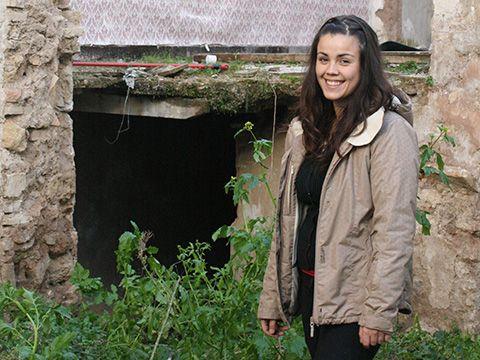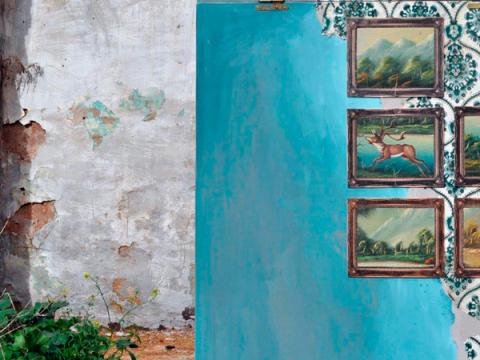María Reyes

Alcalá de Guadaíra (Sevilla), 1988
Graduate in Fine Arts from Seville University (2006-2011); Masters in Art, museums and management of the historical heritage from Pablo de Olavide University in Seville (2012-2013). In 2009, as part of the ‘Proyecto Adhesión’ collective, she exhibited No tienen nombre (They are un-na-med) in the GB Space at the fine Arts School in Seville, where three years later she held her first solo exhibition: Reconstrucciones (Reconstructions). In 2013 she presented the first part of Propuesta esce-nográfica para vivienda deshabitada (Proposed design for an uninhabited house) in the DMencia (Doña Mencía, Córdoba) exhibition cycle. Recently, she has participated in several collective exhibitions, most important of which are the 13th and 15th Plastic Arts Contest from the CEC (Cádiz); 7th Biennal d´art Sant Pere Riudebitlles (Barcelona); the Room Art Fair 2 (Madrid) with the Carmen del Campo Gallery; the 20th National Engraving Awards (Marbella, Málaga); the 5th ‘Ciudad de Cáceres’ Ibero-American Biennial of Graphic Art; the travelling exhibition of the IberArt Awards 2012 at the Goya Foundation (Fuende-todos, Zaragoza), the Salamanca Conference and Exhibition Centre and the ABC Museum in Madrid, and the New work from Spain and The Netherlands exhibition in London; also the 6th UNIA award in Huelva.
She received a prize at the 9th ‘Aires de Córdoba’ Engraving Contest and at the 9th ‘Castillo de Alcalá de Guadaíra’ International Engraving Contest, and the IberArt Awards in 2012. She received a grant for the year 2011-2012 by the Antonio Gala Foundation in Córdoba and Casa de Velazquez in Madrid for 2013. In the last few years, her work has included concepts linked to domesticity and the obsolescence of objects that fill the memory. These are interpretations where the memory intensifies “all that is past” and find a material support in abandonment and ruin where times can cross over.
Actividades
Córdoba. From 20 Feb to 14 Apr 2014
The project is part of addresses concepts linked to domestic life and the obsolescence of objects that condense memory. The imaginary is constructed on the basis of re-reading field work and adding interpretations, using abandonment and ruin as an ideal material support on which to cross time scales.



